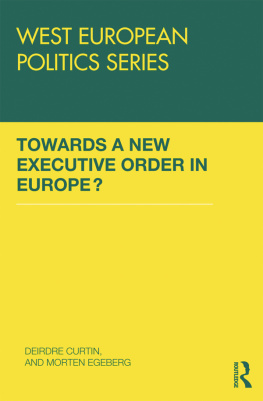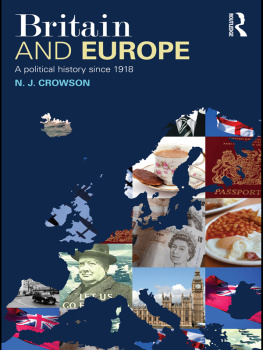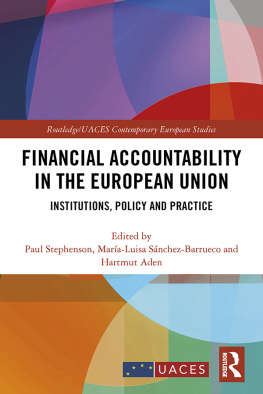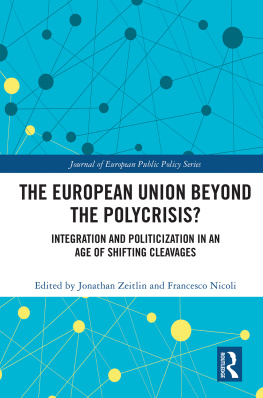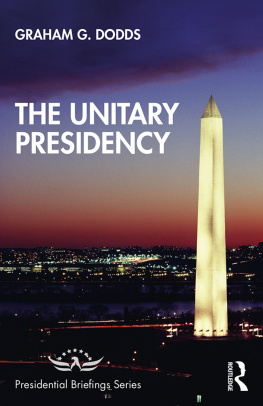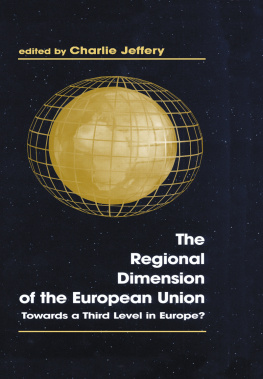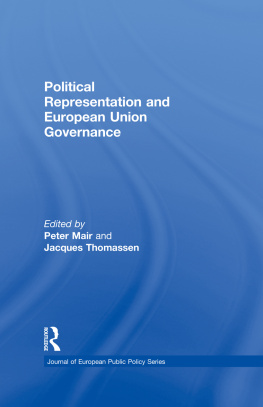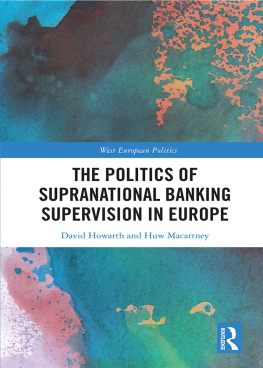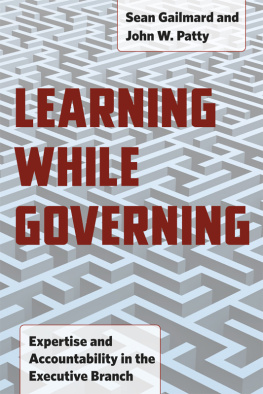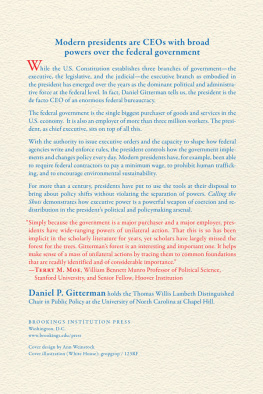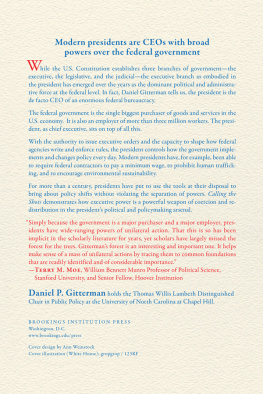Towards a New Executive Order in Europe?
The executive branch of government in Europe is being gradually transformed in several significant respects. First, executive power has been continuously strengthened at the EU level in the form of the European Commission, EU-level agencies and diplomatic and military staff in the Council Secretariat. Second, EU executive bodies relate directly to (regulatory) authorities at the national level in charge of applying (and partly preparing) EU laws and programmes, partly circumventing ministerial departments. Thus, parts of national administrations become parts of an integrated and multi-level Union administration as well as parts of national executives. Such a system with multiple political masters raises delicate questions about political steering and accountability. This book focuses on this fascinating development both from a political science and a legal perspective, encompassing the consolidation of the supranational executive as well as its relationships with its partners at the national level.
This book was published as a special issue of West European Politics.
Deirdre Curtin is Professor of European Law at the University of Amsterdam and Professor of International and European Governance at the multi-disciplinary Utrecht School of Governance.
Morten Egeberg is Professor of Public Policy and Administration at the Department of Political Science and at ARENA- Centre for European Studies, University of Oslo.
West European Politics Series
Edited byKlaus H. Goetz, University of Potsdam, Germany, Peter Mair-European University Institute, Italy andGordon SmithLondon School of Economics and Political Science, UK
West European Politics has established itself as the foremost journal for the comparative analysis of European political institutions, politics and public policy. Its comprehensive scope, which includes the European Union, makes it essential reading for both academics and political practitioners. The books in this series have originated from special issues published by West European Politics.
Immigration Policy in Europe
The politics of control
Edited by Virgine Guiradon and Gallya Lahav
Norway in Transition
Transforming a stable democracy
Edited by Oyvind Osterud
Policy Change and Discourse in Europe
Edited by Claudio M. Radaelli and Vivien Schmidt
Politics and Policy in Greece
The challenge of modernisation
Edited by Kevin Featherstone
Frances Political Institutions at 50
Edited by Emiliano Grossman and Nicolas Sauger
Interest Group Politics in Europe
Lessons from EU Studies and Comparative Politics
Edited by Jan Beyers, Rainer Eising and William A. Maloney
Italy A Contested Polity
Edited by Martin Bull and Martin Rhodes
European Politics
Pasts, presents, futures
Edited by Klaus H. Goetz, Peter Mair and Gordon Smith
The Politics of Belgium
Institutions and policy under bipolar and centrifugal federalism
Edited by Marleen Brans, Lieven De Winter and Wilfried Swenden
Towards a New Executive Order in Europe?
Edited by Deirdre Curtin and Morten Egeberg
First published 2009 by Routledge
2 Park Square, Milton Park, Abingdon, Oxon, OX14 4RN
Simultaneously published in the USA and Canada
by Routledge
270 Madison Avenue, New York, NY 10016
Routledge is an imprint of the Taylor & Francis Group, an informa business
2009 Edited by Deirdre Curtin and Morten Egeberg
All rights reserved. No part of this book may be reprinted or reproduced or utilised in any form or by any electronic, mechanical, or other means, now known or hereafter invented, including photocopying and recording, or in any information storage or retrieval system, without permission in writing from the publishers.
British Library Cataloguing in Publication Data
A catalogue record for this book is available from the British Library
ISBN10: 0-415-48313-1
ISBN13: 978-0-415-48313-1
Tim Balint is Research Assistant at the Chair of Comparative Public Policy and Administration at the University of Konstanz. He studied Public Administration at the Universities of Konstanz and Granada (20002006) and holds a Masters in Politics and Administration. Since 2007, Tim Balint has been investigating administrative reforms and cultures in international organisations in the context of a research project supported by the University of Konstanzs Centre of Excellence Cultural Foundations of Social Integration.
Michael W. Bauer is Assistant Professor of Comparative Public Policy and Public Administration in the Department of Politics and Management at the University of Konstanz. He received his doctoral degree from the European University Institute, Florence. His research interests are comparative policy analysis, public sector reform and subnational governance. He is co-editor of Management Reforms in International Organizations (Nomos, 2007) and has recently worked on issues of reforming international executive institutions.
Kieran St Clair Bradley is Head of the Unit for Justice and Civil Liberties in the European Parliaments Legal Service. He has represented Parliament in a number of cases before the Court of Justice concerning comitology questions, and was legal advisor to Parliaments team in the negotiations leading to the 2006 decision and associated agreements. He has written extensively on the institutional law of the European Union, including on comitology, and has lectured on European law in a number of universities and institutes, including Harvard Law School, the University of Melbourne and the College of Europe (Natolin).
Thomas Christiansen is Professor in European Institutional Politics at Maastricht University and also holds positions at the European Institute of Public Administration in Maastricht and at the College of Europe in Bruges. He is Executive Editor of the Journal of European Integration co-editor of the Europe in Change series at Manchester University Press and member of the steering committee of the Standing Group of the European Union of the European Consortium of Political Research. His publications include Informal Governance of the European Union (Edward Elgar, 2004), edited with Simona Piattoni, and The Social Construction of Europe (Sage, 2001), edited with Knud Erik Jrgensen and Antje Wiener.

